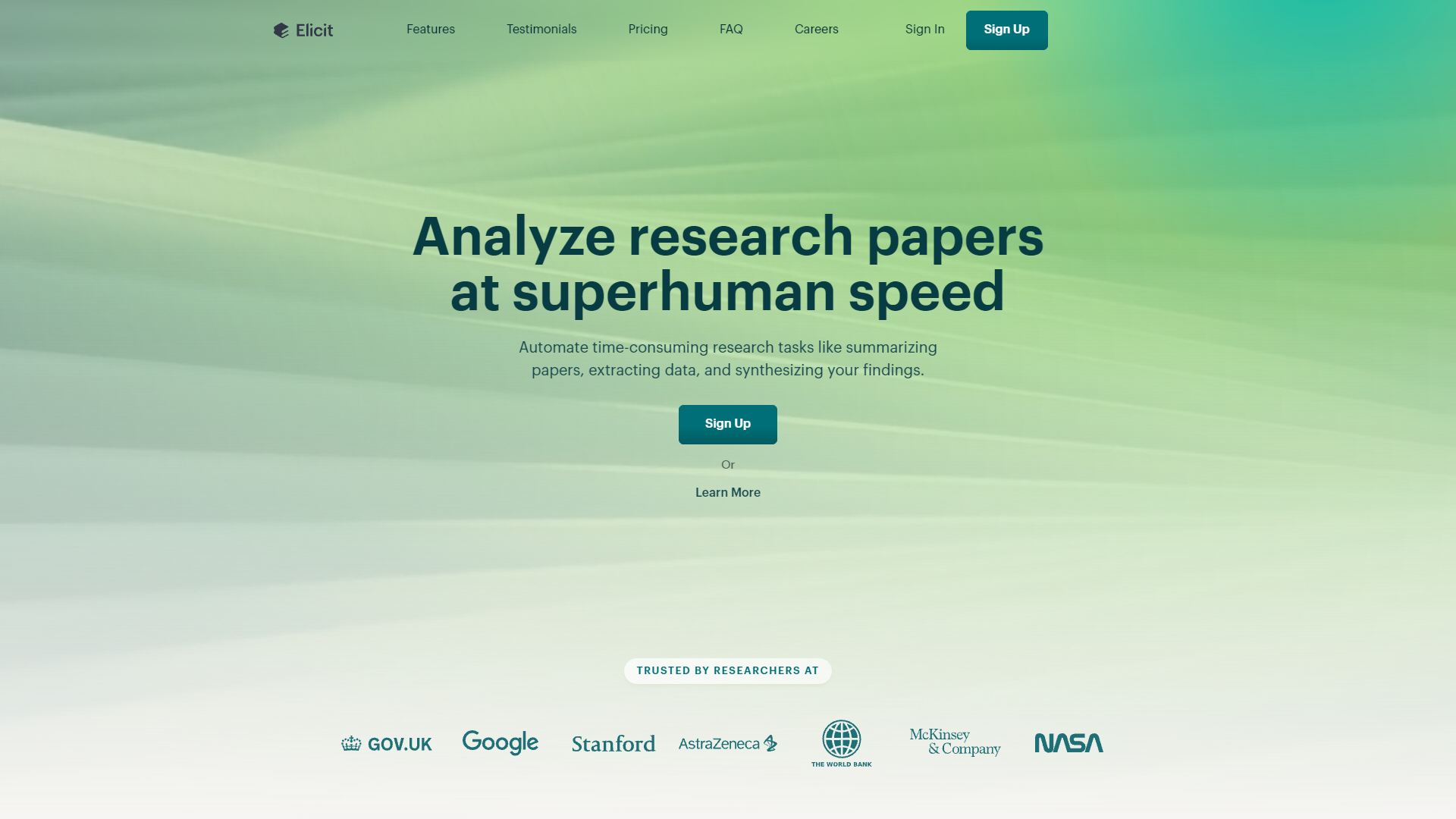Overview
Elicit is an innovative AI-powered tool designed to revolutionize the way researchers handle their work, enhancing efficiency and accuracy in academic research. This advanced platform automates several research tasks, including summarizing academic papers, extracting key data points, and synthesizing research findings into coherent themes. Elicit allows users to effortlessly search through an extensive database of 125 million academic papers, providing quick one-sentence summaries and detailed extractions in organized tables.
Researchers can upload PDFs directly to the platform, receive instant summaries, and interact with the content by asking specific questions, making it easier to dive deep into topics without spending hours reading through entire documents. Elicit is trusted by a wide range of reputable organizations, with many users praising its ability to surface critical information and significantly cut down on research time and costs.
The tool offers various pricing plans tailored to different research needs, catering to students, independent researchers, and professionals. While Elicit excels in empirical research domains, it is less suited for non-empirical studies or areas not extensively covered in academic literature. Users are encouraged to verify the AI-generated data, ensuring reliability and precision in their research outcomes.
Key features
- One-sentence summaries: Quickly grasp the essence of research papers with concise one-sentence abstracts, enhancing initial understanding and selection efficiency.
- Data extraction tables: Automatically organize extracted data from multiple papers into structured tables, facilitating easy comparison and analysis.
- Thematic synthesis: Identify and compile common themes across various papers, aiding in the synthesis of broad research findings and insights.
- Interactive questioning: Pose specific questions to the AI about research papers and receive targeted answers, deepening understanding of complex topics.
- PDF upload capability: Conveniently upload and analyze PDF documents directly, allowing the tool to process and summarize content seamlessly.
- Multi-tier pricing: Offers flexible subscription plans tailored to different user needs, from students to professional researchers, ensuring affordability and accessibility.
 Pros
Pros
- Keyword alerts: Receive notifications when new papers include specific keywords, ensuring you stay updated on relevant research developments and trends.
- Collaboration tools: Share findings and collaborate directly within the platform, enhancing teamwork and streamlining research efforts among colleagues.
- Visual data representation: Transform complex data into visual formats like graphs and charts, making analysis more accessible and understandable.
- Historical data comparison: Compare current research findings with historical data to identify trends, changes, and advancements over time.
- Customizable interface: Tailor the workspace to fit individual preferences and workflows, improving user experience and productivity.
 Cons
Cons
- Abstract oversimplification: One-sentence summaries may oversimplify complex research, potentially omitting critical nuances and leading to misinterpretations.
- Data relevance variability: The automated extraction of data into tables might not always prioritize the most relevant information, affecting the quality of analysis.
- Theme generalization risk: Thematic synthesis could generalize unique research specifics, which might overshadow unique insights in favor of broader themes.
- Limited interactive depth: Interactive questioning may not always grasp the full depth or context of the research, leading to incomplete or superficial answers.
- PDF format dependency: Relying solely on PDF uploads may exclude valuable content in other formats, limiting the scope of research materials that can be analyzed.
















